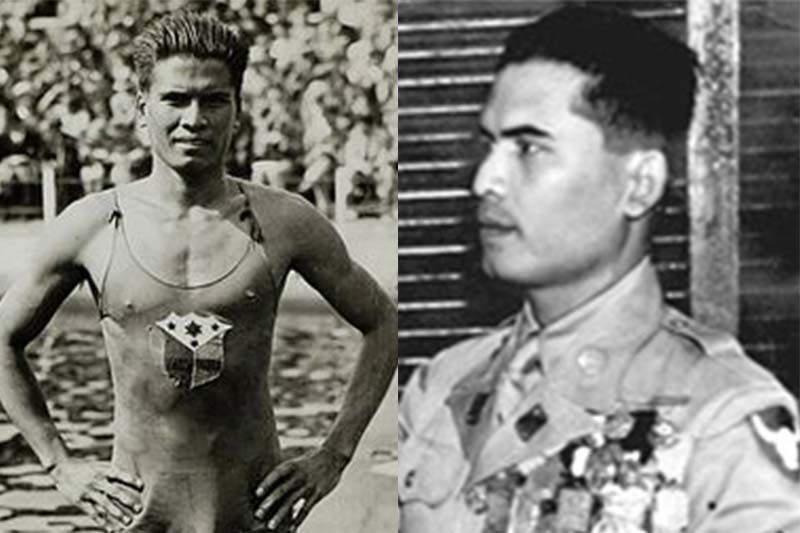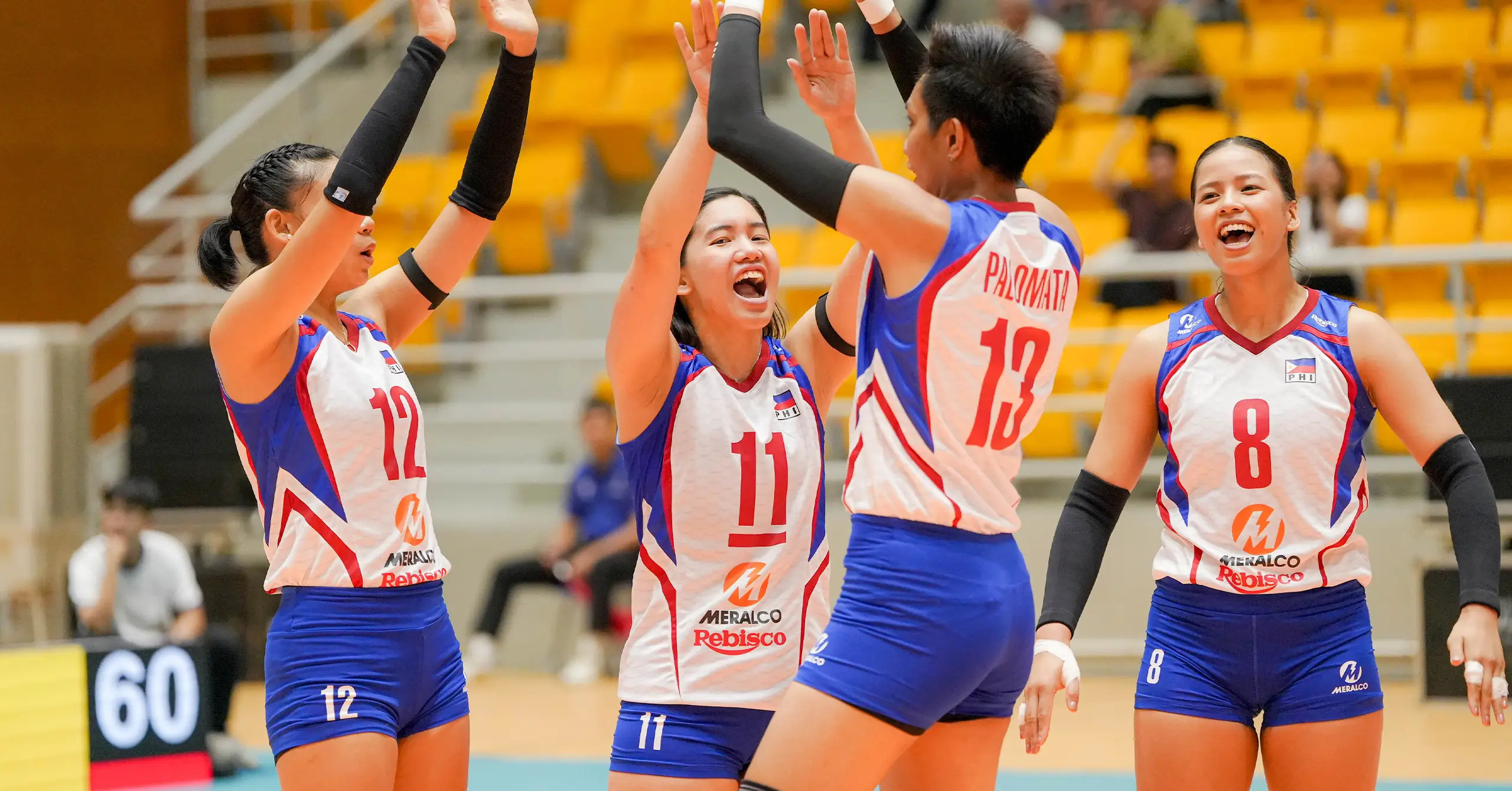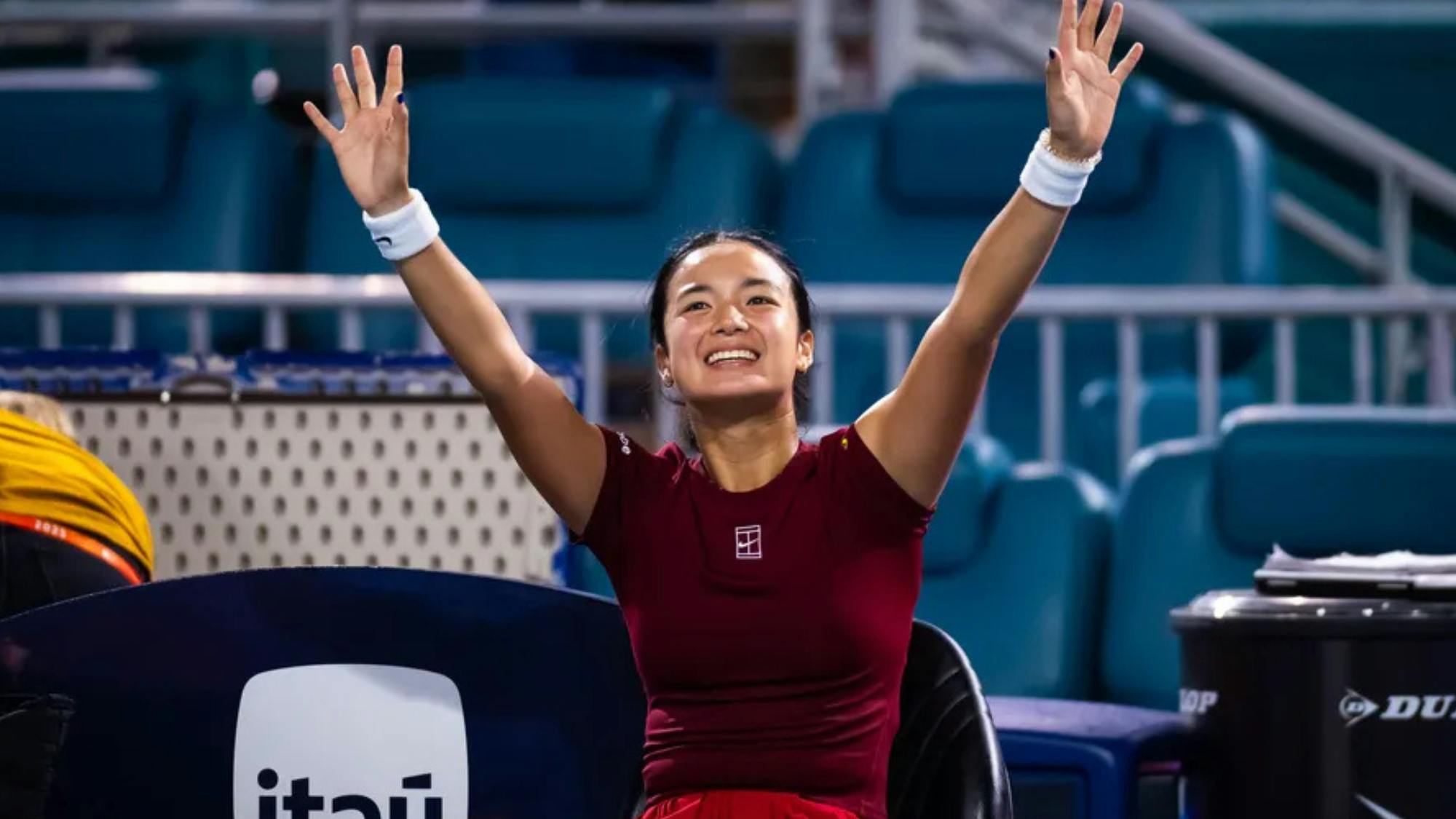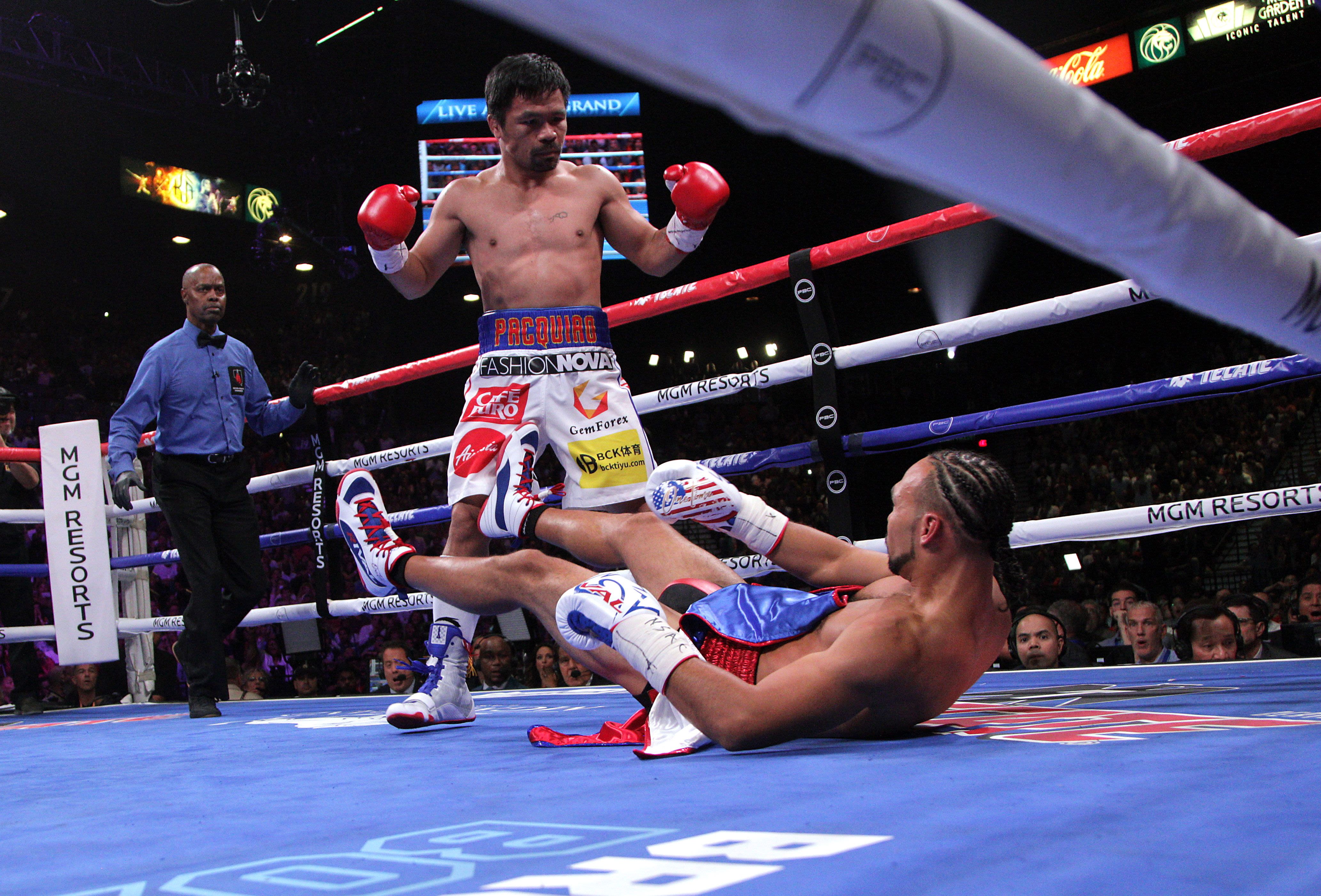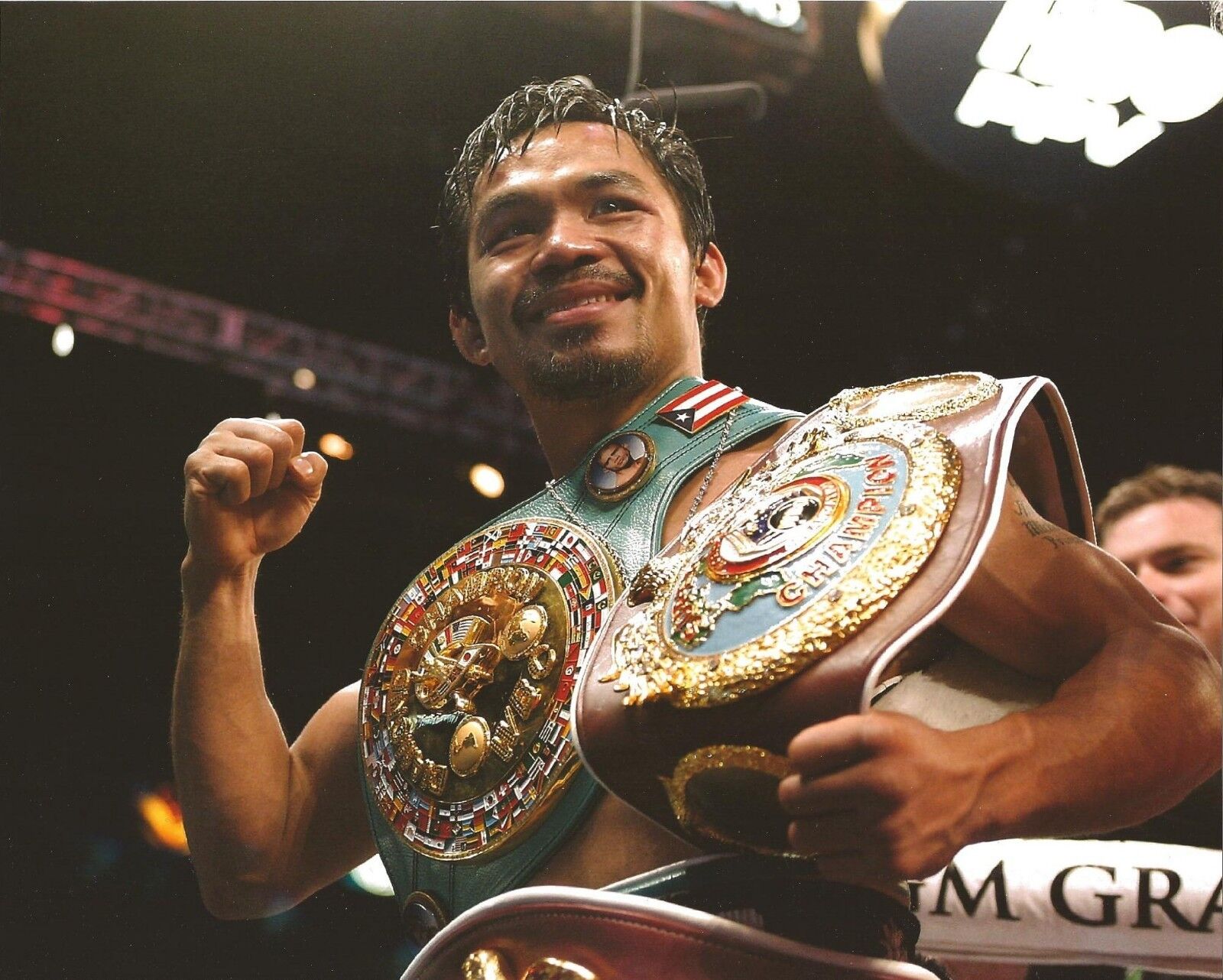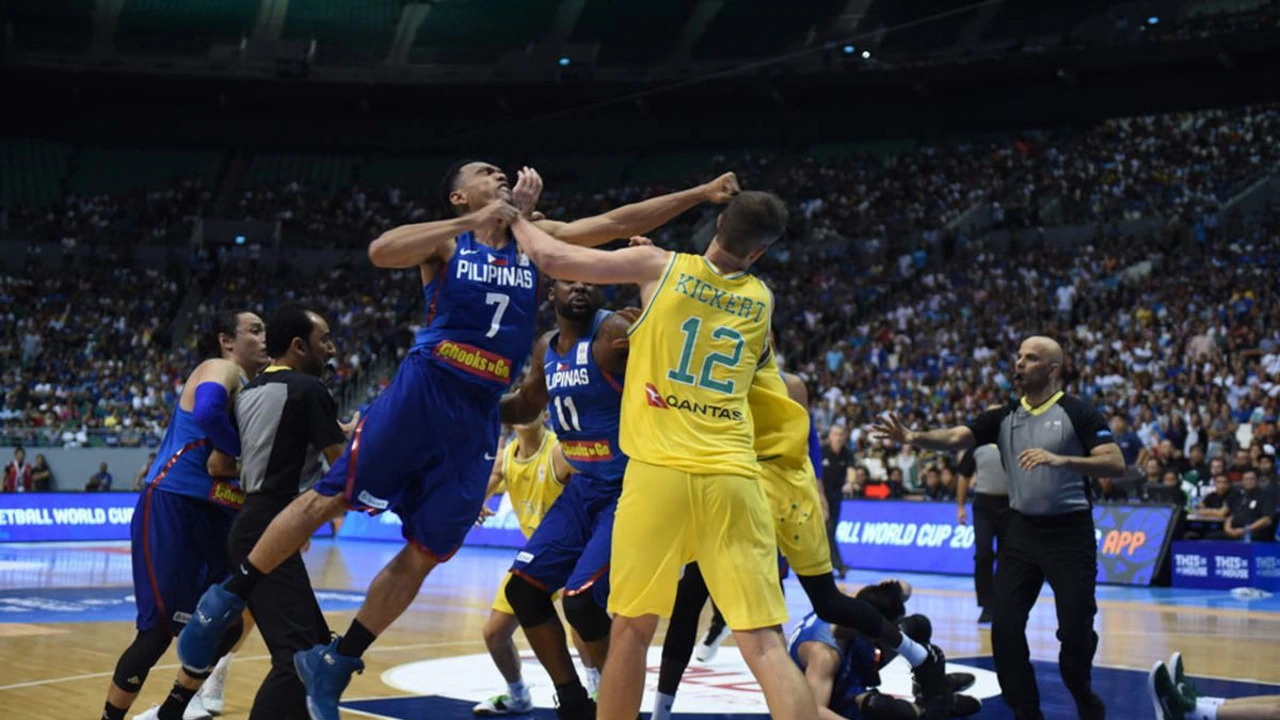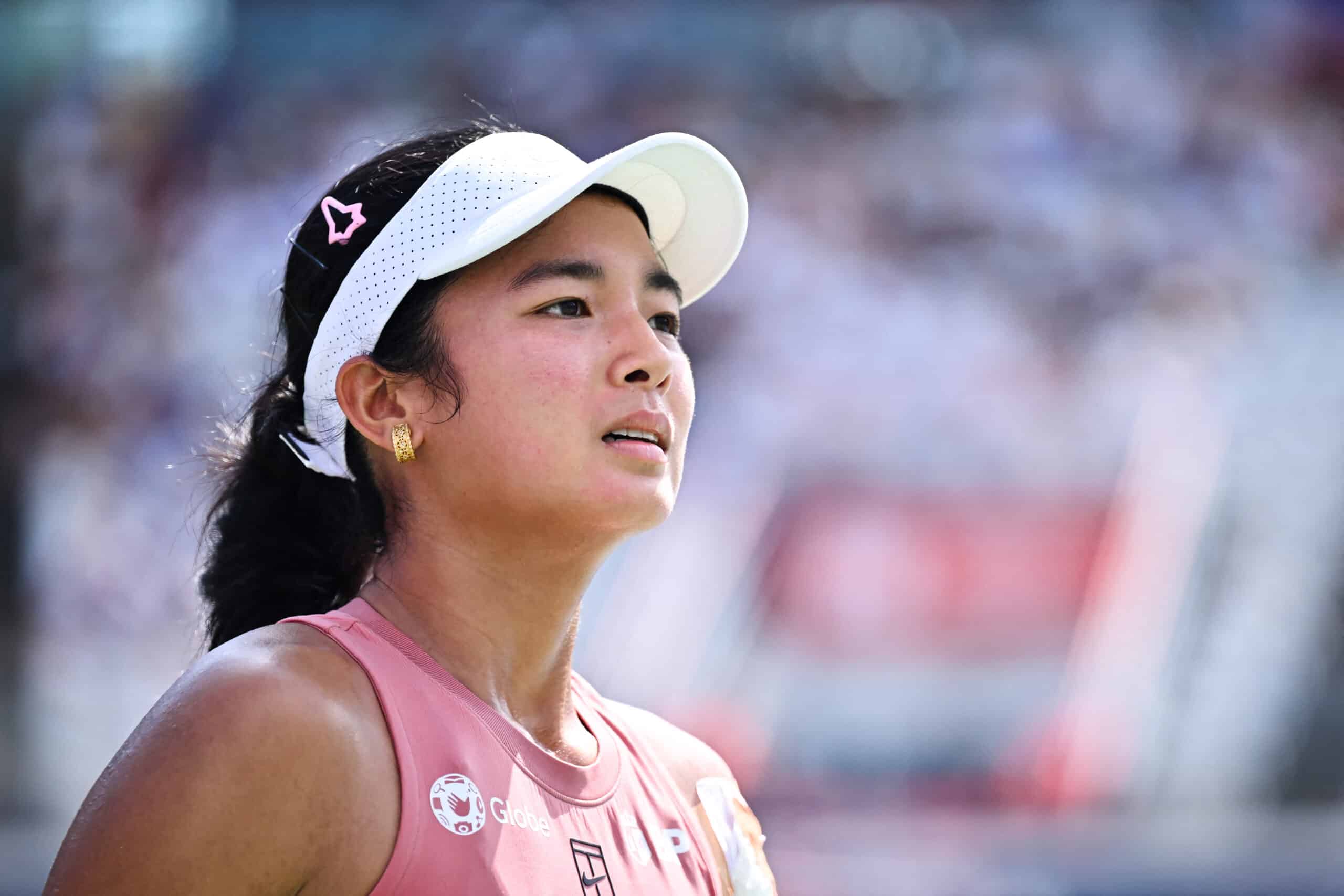- Home
- BasketballDiscover the latest trends, style tips, and fashion news from around the world. From runway highlights to everyday looks, explore everything you need to stay stylish and on-trend.
- Volleyball
- Soccerstay updated with the latest football news, match highlights, scores, player stats, and expert analysis from leagues around the world. Your ultimate destination for all things football.
- BoxingTransform your living spaces with inspiration, tips, and trends in interior design. From minimalist decor to bold statements, find ideas for every style and budget.
- Blogs
- Fixtures & ResultsGet the latest sports fixtures and results, including schedules and scores for NBA, PBA, UAAP, NCAA, and more. Stay informed with real-time updates at Sports News PH.
- Pinoy Sports PulseStay updated with the latest sports news, scores, and analyses from the Philippines. Covering PBA, UAAP, NCAA, and more
- Esports
- Opinion & EditorialExplore an in-depth analysis of recent policy changes and their effects on local communities in our latest editorial.
- Game PredictionsAccess expert game predictions, betting tips, and detailed analyses for NBA, PBA, and international sports events. Stay informed and enhance your game insights with our accurate forecasts.
- OKGamesDiscover unlimited fun at OKgames—a free online gaming platform featuring arcade, strategy, racing, and puzzle games with no downloads required.
- Player ProfileDiscover detailed football player profiles including career stats, biography, position, club history, and recent performances. Everything you need to know about top football talent.
- Stars Beyond Sports
- Home
- BasketballDiscover the latest trends, style tips, and fashion news from around the world. From runway highlights to everyday looks, explore everything you need to stay stylish and on-trend.
- Volleyball
- Soccerstay updated with the latest football news, match highlights, scores, player stats, and expert analysis from leagues around the world. Your ultimate destination for all things football.
- BoxingTransform your living spaces with inspiration, tips, and trends in interior design. From minimalist decor to bold statements, find ideas for every style and budget.
- Blogs
- Fixtures & ResultsGet the latest sports fixtures and results, including schedules and scores for NBA, PBA, UAAP, NCAA, and more. Stay informed with real-time updates at Sports News PH.
- Pinoy Sports PulseStay updated with the latest sports news, scores, and analyses from the Philippines. Covering PBA, UAAP, NCAA, and more
- Esports
- Opinion & EditorialExplore an in-depth analysis of recent policy changes and their effects on local communities in our latest editorial.
- Game PredictionsAccess expert game predictions, betting tips, and detailed analyses for NBA, PBA, and international sports events. Stay informed and enhance your game insights with our accurate forecasts.
- OKGamesDiscover unlimited fun at OKgames—a free online gaming platform featuring arcade, strategy, racing, and puzzle games with no downloads required.
- Player ProfileDiscover detailed football player profiles including career stats, biography, position, club history, and recent performances. Everything you need to know about top football talent.
- Stars Beyond Sports
Now Reading: Paulino Alcántara: The Filipino Who Conquered Europe’s Football Fields
-
01
Paulino Alcántara: The Filipino Who Conquered Europe’s Football Fields
- Home//
- Basketball//Discover the latest trends, style tips, and fashion news from around the world. From runway highlights to everyday looks, explore everything you need to stay stylish and on-trend.
- Volleyball//
- Soccer//stay updated with the latest football news, match highlights, scores, player stats, and expert analysis from leagues around the world. Your ultimate destination for all things football.
- Boxing//Transform your living spaces with inspiration, tips, and trends in interior design. From minimalist decor to bold statements, find ideas for every style and budget.
- Blogs//
- Fixtures & Results//Get the latest sports fixtures and results, including schedules and scores for NBA, PBA, UAAP, NCAA, and more. Stay informed with real-time updates at Sports News PH.
- Pinoy Sports Pulse//Stay updated with the latest sports news, scores, and analyses from the Philippines. Covering PBA, UAAP, NCAA, and more
- Esports//
- Opinion & Editorial//Explore an in-depth analysis of recent policy changes and their effects on local communities in our latest editorial.
- Game Predictions//Access expert game predictions, betting tips, and detailed analyses for NBA, PBA, and international sports events. Stay informed and enhance your game insights with our accurate forecasts.
- OKGames//Discover unlimited fun at OKgames—a free online gaming platform featuring arcade, strategy, racing, and puzzle games with no downloads required.
- Player Profile//Discover detailed football player profiles including career stats, biography, position, club history, and recent performances. Everything you need to know about top football talent.
- Stars Beyond Sports//
- Home
- Player Profile
- Paulino Alcántara: The Filipino Who Conquered Europe’s Football Fields
Paulino Alcántara: The Filipino Who Conquered Europe’s Football Fields
Arjun DevganPlayer Profile3 months ago379 Views
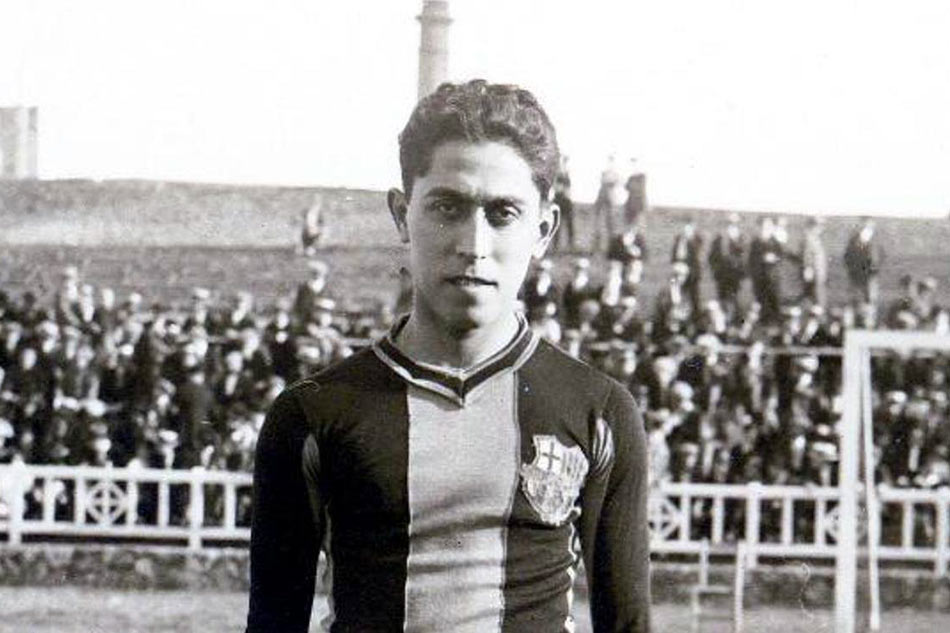
Born on October 7, 1896 in Concepción, Ilo-Ilo (then part of the Captaincy General of the Philippines), Paulino Alcántara Riestrá embodied a rare blend of multicultural heritage and precocious talent. His father, Eduardo de Alcántara y Garchitorena, was a Filipino-Spanish criollo and a soldier in the Spanish Army; his mother, Victoriana Riestrá y Cauilán, was of mixed Filipino-Spanish descent.
At age 3, his family relocated to Barcelona, Spain, where young Paulino discovered and nurtured his footballing gifts. The local football scene would soon witness something extraordinary.
A Meteoric Rise at FC Barcelona
In February 1912, at just 15 years and about four months old, Alcántara made his first-team debut for FC Barcelona—a club record as the youngest player ever to appear for the Catalan side. In that debut match, he scored a hat-trick in a 9-0 victory against Català SC.
His nickname soon became “El Rompe Redes” (“the net-breaker”) after a famous shot reportedly tore through the goal net in an international fixture (Spain vs. France) in 1922.
During his Barcelona career (1912-1927, with a brief break to study in the Philippines), his tally of 369 goals in 357 matches was a club benchmark that lasted until Lionel Messi finally surpassed it in 2014.
Beyond individual scoring, Alcántara helped Barcelona to multiple Catalan Championships and Copa del Rey titles, anchoring the club’s early era of success.
Representing Two Nations and Making History
Alcántara’s international career was as unique as his club achievements. He represented:
- Philippines national football team in 1917, scoring in the team’s famed 15-2 win over Japan at the Far Eastern Championship Games—still the country’s largest margin of victory.
- Spain national football team from 1921 to 1923, earning multiple caps and goals.
He thus became one of the first Asian-born players to excel in European football, helping put the Philippines and Asian representation on the global football map.
The Scholar-Athlete and Life Beyond Football
Despite his footballing stardom, Alcántara pursued another passion—medicine. He deferred Spain’s Olympic call-up in 1920 to complete his medical exams, underscoring a commitment to both education and sport.
When he retired in July 1927, aged 30, he did so to practise as a doctor. Barcelona honoured him with a testimonial farewell match.
Later, he served as a director for Barcelona (1931-34) and even coached Spain’s national team briefly.
Paulino Alcántara. Barcelona’s lesser-known legend, “Asia’s greatest ever player”. Would wear a towel in his shorts waistband to wipe sweat or mud off his face during the game. Love that it features in artwork of him pic.twitter.com/RIE0yP5awE
— Angelo Trofa (@angt34) October 5, 2025
Legacy, Recognition & Enduring Impact
Alcántara’s legacy is significant both in the Philippines and globally:
- In 2007, FIFA recognised him as one of the greatest Asian footballers of all time.
- The Philippines’ national football cup is named the Copa Paulino Alcántara, inaugurated in 2018.
- In 2021, he was formally enshrined in the Philippine Sports Hall of Fame.
His story continues to inspire Filipino athletes: a local boy who conquered Europe, blended scholarship with sport, and shattered barriers in an era when it was scarcely done.
Why Alcántara Still Matters
- Trailblazer: He showed that Asian-born players could excel at the highest level of European football—long before globalisation and modern scouting made such paths more common.
- Dual Identity & Representation: His heritage—Filipino by birth, Spanish by upbringing—offers a narrative of cultural bridging. Filipino fans have a proud figure in his story; Barcelona’s history celebrates him as one of its early icons.
- Legacy of Excellence: The records he set, such as youngest debut and immense goal output, stood for decades—legacies that teach the importance of perseverance and skill.
- Beyond Sport: His decision to pursue medicine and his directorial roles after his playing days reflect a fuller vision of athlete as citizen and scholar, not just performer.
Reflections & Notes of Caution
While widely celebrated, Alcántara’s life does come with complexities — not all records from his era are fully verified by contemporary standards, and his career straddled a different era of football where friendly matches and competitions had different structures. Some historical accounts mention political affiliations later in his life which may tarnish aspects of his legacy.
Nevertheless, the essence of Alcántara’s story is one of pioneering spirit, sporting brilliance, and heritage-rich identity—a legacy that deserves renewed attention, especially in the Philippines, where football remains an under-celebrated sport.
Final Word
From the sun-soaked fields of Ilo-Ilo to the white stands of Les Corts in Barcelona, Paulino Alcántara soared. He was “the net-breaker,” the Filipino-Spanish prodigy whose goals shook nets and whose story bridges continents. For young Filipino athletes having dreams of world stages—it is to Paulino they can point and say: “See where one of us went. See where you can go.”
👉 Don’t miss out on the latest sports news, updates, and fan discussions!
📌 Follow our Facebook page Sports News PH today and join the community of passionate sports fans.












